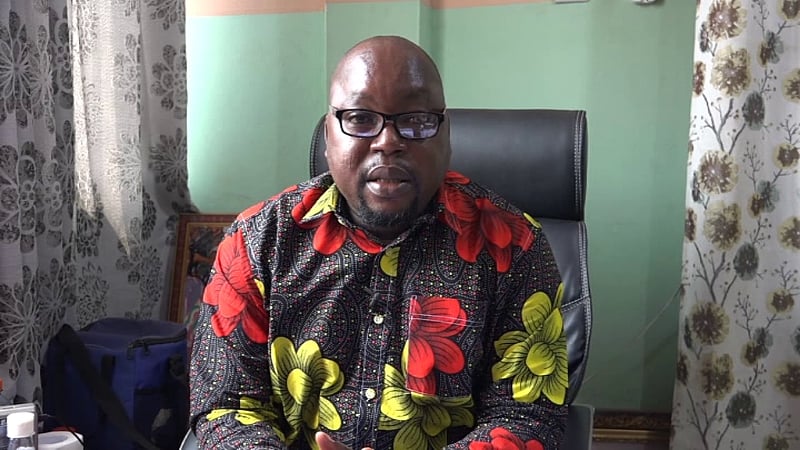The People’s National Convention (PNC) has vehemently denounced the eruption of violence that marred the Akwatia by-election, expressing profound concern over a specific incident involving high-ranking officials from Ghana’s two major political parties. The incident, captured on video and widely circulated, depicts the National Democratic Congress (NDC) Vice Chairman, Chief Sofo Azorka, physically assaulting the New Patriotic Party (NPP) Vice Chairman, Alhaji Osman Masawudu, while allegedly inciting his supporters to participate in the attack. The PNC characterized this act as “shameful,” emphasizing that such conduct is unacceptable within Ghana’s political landscape, particularly when perpetrated by senior party members who should exemplify responsible leadership and discipline.
The PNC’s statement underscores the detrimental impact of such violent acts on public trust in the democratic process. It argues that such displays not only erode confidence but also risk igniting unnecessary tensions and animosity among citizens. The party, therefore, calls on the leadership of both the NDC and NPP to take decisive disciplinary action against the officials involved. Furthermore, the PNC urges the Ghana Police Service and the Electoral Commission to conduct a thorough investigation into the incident, emphasizing the importance of accountability and the need to prevent impunity and lawlessness from becoming entrenched in the political arena. The party stresses that a clear message must be sent that violence will not be tolerated in Ghana’s political discourse.
While condemning the violence, the PNC extended its congratulations to the newly elected Member of Parliament for Akwatia. The party urged the MP-elect to prioritize the constituency’s development, focusing on inclusive policies and fostering a peaceful environment. This dual approach – condemning the violence while acknowledging the democratic outcome – reflects the PNC’s commitment to upholding democratic values while simultaneously addressing the troubling trend of political violence.
The PNC reaffirmed its unwavering commitment to peaceful and issue-based politics, urging all political stakeholders to shift the national discourse away from confrontation and towards constructive dialogue centered on policies, ideas, and meaningful development. The party emphasized the need for political discussions to be grounded in substance rather than resorting to personal attacks or violence. This focus on issue-based politics, according to the PNC, is essential for fostering a healthy democracy and achieving sustainable development.
The PNC’s statement serves as a call for unity and responsible leadership across the political spectrum. It emphasizes the paramount importance of safeguarding Ghana’s democratic values, arguing that these values are fundamental to the nation’s progress and stability. The party’s condemnation of the violence in Akwatia is not merely a reaction to a single incident; it is a broader appeal for a more mature and responsible political culture in Ghana. The PNC advocates for a political environment characterized by respect, dialogue, and a commitment to peaceful resolution of differences, urging all parties to prioritize the nation’s well-being over partisan interests.
In essence, the PNC’s statement is a plea for a return to the core principles of democracy. It highlights the dangers of political violence, not only for the immediate victims but also for the long-term health of the democratic process. The call for accountability, coupled with the emphasis on peaceful and issue-based politics, represents the PNC’s vision for a more mature and constructive political landscape in Ghana. The party’s message resonates beyond the specific incident in Akwatia, serving as a timely reminder of the importance of upholding democratic values and promoting a culture of peace and respect in the political arena. This call for unity and responsible leadership is not merely a political statement; it is an appeal to the conscience of the nation, urging all Ghanaians to work towards a future where political discourse is characterized by dialogue, respect, and a shared commitment to national progress.


